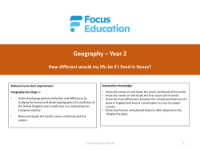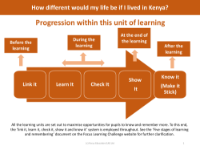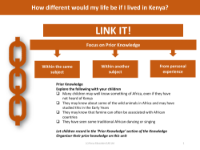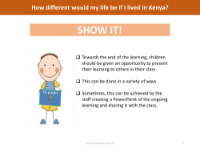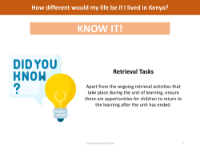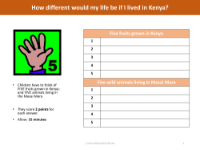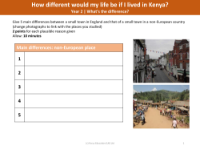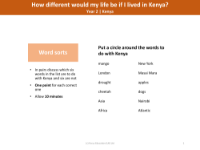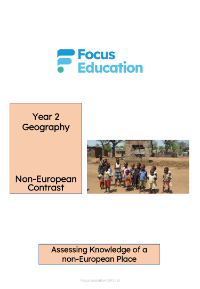Knowledge organiser - Non European contrast - Year 2
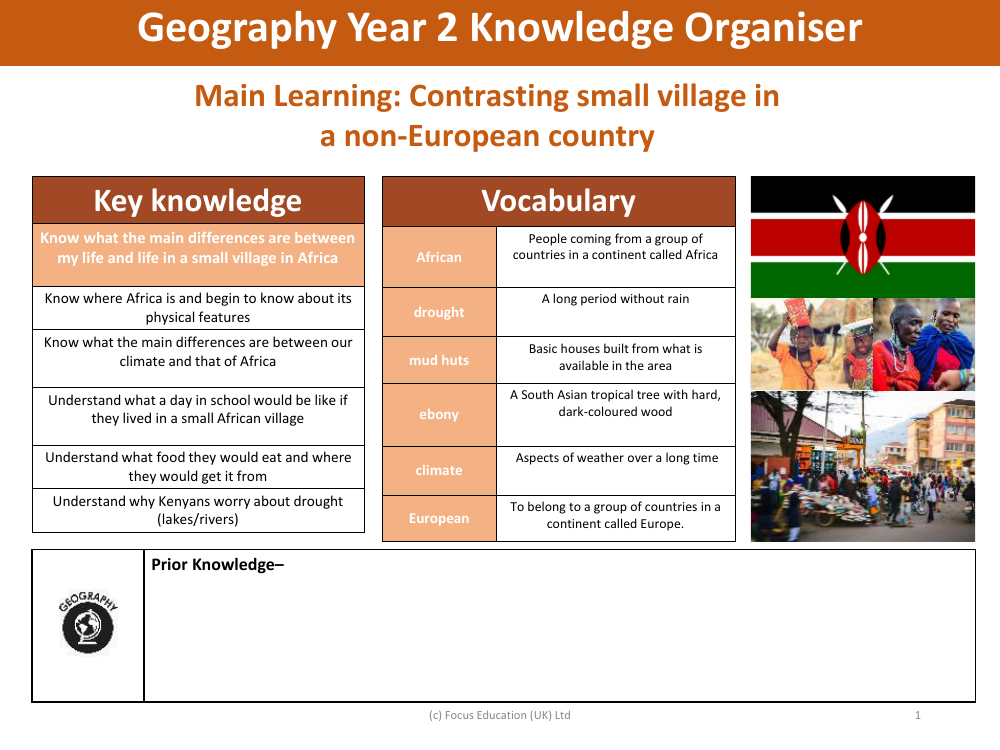
Geography Resource Description
The Year 2 Geography Knowledge Organiser provides a comprehensive guide for students to understand the contrast between life in a small African village and their own experiences in Europe. The vocabulary section introduces key terms such as 'African', referring to people from the continent of Africa, and 'European', denoting those belonging to the continent of Europe. It explains the concept of 'drought', a prolonged period without rain, and describes 'mud huts' as basic dwellings constructed from locally available materials. The term 'ebony' is identified as a tropical tree from South Asia known for its hard, dark wood, while 'climate' is defined as the long-term pattern of weather.
Students are expected to gain specific knowledge about the differences between their lives and those in an African village, including the geographical location of Africa and its physical features. They will explore the distinct climates of Europe and Africa, experience a typical school day in an African village through learning, and understand the local food sources and the significance of drought to Kenyan communities. The organiser also touches on prior knowledge, such as recognising the seven continents and five oceans, and the differences between a place in England and a non-European country. It introduces 'sticky knowledge' about Kenya, highlighting its capital Nairobi, languages, Lake Victoria, significant agriculture, diverse wildlife, and socio-economic challenges. This educational tool aims to broaden students' global perspectives and enhance their understanding of cultural and environmental diversity.
